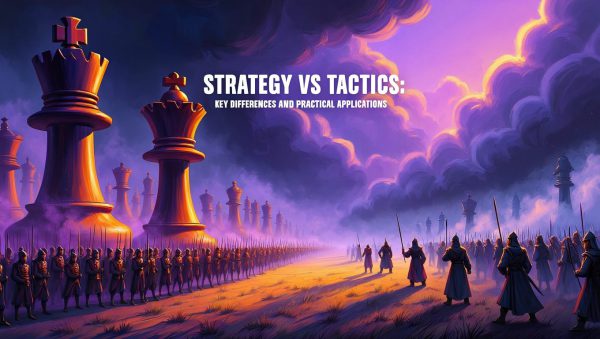
Dec 11, 2024
What Kinds of Behaviors Can Prevent People from Making Smart Investing Decisions?
By its very nature, investing is a complex endeavour combining elements of financial acumen, psychological resilience, and strategic foresight. However, numerous behaviours and cognitive biases can derail even the most well-intentioned investor from making sound decisions. This question lies at the heart of the discussion, as understanding these behaviours is crucial for success. This essay explores these detrimental behaviours by delving into mass psychology, technical analysis, and cognitive bias, supplemented by the timeless wisdom of historical figures like Hammurabi, Thales of Miletus, Pythagoras, Heraclitus, Socrates, and Plato.
Mass Psychology and Herd Behavior
Mass psychology, which often manifests as herd behaviour, is one of the most pervasive influences on investor behaviour. This is where individuals tend to follow the actions of a larger group, often ignoring their analysis or the fundamentals of the investment. The bandwagon effect can lead to bubbles, as seen in the dot-com boom of the late 1990s and the housing market crash in 2007 and 2008.
Example: During the dot-com bubble, many investors bought into tech stocks simply because everyone else was doing so. Companies with little to no earnings were valued at astronomical levels, driven by the fear of missing out (FOMO). Thales of Miletus, often regarded as one of the first speculative investors, might advise, “Do not be swayed by the crowd, but rather by the substance of the investment.”
What Kinds of Behaviors Can Prevent People from Making Smart Investing Decisions? Cognitive Biases
Cognitive biases are systematic patterns of deviation from norm or rationality in judgment. These biases can significantly impair decision-making processes. Some of the most common biases that affect investors include:
1. Overconfidence Bias: Many investors overestimate their knowledge or predictive abilities, leading them to take excessive risks. Pythagoras, known for his contributions to mathematics and philosophy, might suggest, “Measure twice, cut once.” In investing, this could translate to double-checking one’s assumptions and analyses before making a decision.
2. Confirmation Bias: This bias leads investors to seek information confirming their preexisting beliefs while ignoring contradictory data. Heraclitus, who believed in the constant flux of life, might remind us, “The only constant is change.” In the world of investing, this means being open to new information and adjusting one’s strategies accordingly.
3. Anchoring bias: This tendency to rely too heavily on the first piece of information encountered (the “anchor”) when making decisions. For instance, if an investor buys a stock at $100, they might irrationally hold onto it even as it plummets, anchored to its initial price. Socrates, who valued questioning and critical thinking, would likely advise, “Know thyself,” encouraging investors to be aware of their biases and adjust their strategies accordingly.
Technical Analysis and Behavioral Pitfalls
Technical analysis, which involves evaluating securities by analyzing statistics generated by market activity, such as past prices and volume, can also be influenced by behavioural pitfalls. For example:
1. Pattern Recognition: Investors might see patterns where none exist, a phenomenon known as apophenia. Plato, who emphasized the importance of ideal forms and rational thought, might argue that “true knowledge comes from understanding the essence of things, not mere appearances.” In investing, this means distinguishing between genuine market signals and random noise.
2. Recency Bias: This is the tendency to give undue weight to recent events when making decisions. For example, if a stock has performed well in the past few months, an investor might irrationally assume it will continue to do so. Hammurabi, known for his code of laws, would likely stress the importance of long-term thinking and consistency in one’s approach rather than being swayed by short-term fluctuations.
Real-Life Example: The 2008 Financial Crisis
The 2008 financial crisis is a poignant example of how these behaviours and biases can lead to disastrous investing decisions. Many investors were caught in a cycle of overconfidence and herd behaviour leading up to the crisis, buying into mortgage-backed securities without fully understanding the risks involved. Confirmation bias led them to ignore warning signs while anchoring to historical home price trends, which made them believe the housing market could never crash.
Contrarian Investing
Contrarian investing is an approach that goes against prevailing market trends. It requires a high degree of independent thinking and psychological resilience. Plato’s allegory of the cave, where prisoners mistake shadows for reality, can be applied here. Contrarian investors seek to understand the true value of an investment rather than being misled by market sentiment.
Example: Warren Buffett, often regarded as the epitome of a contrarian investor, famously advises to “be fearful when others are greedy and greedy when others are fearful.” During the financial crisis, while many investors were panic-selling, Buffett invested in companies like Goldman Sachs and General Electric, which were undervalued due to irrational market fears.
Emotional Control
Emotions play a significant role in investing. Fear and greed are potent drivers that can lead to irrational decision-making. Heraclitus’s constant change and flux philosophy can help investors remain detached and adaptable. Emotional control is crucial for maintaining a long-term perspective and avoiding impulsive decisions.
Example: In the early 2000s, Amazon’s stock price experienced significant volatility. Many investors, driven by fear, sold their shares during downturns. However, those who maintained emotional control and held on to their investments were eventually rewarded as Amazon became one of the most valuable companies in the world.
The Importance of Diversification
Diversification is a fundamental principle of sound investing. Investors can mitigate risk by spreading investments across different asset classes and sectors. Pythagoras’s emphasis on balance and harmony can be applied to portfolio management. A well-diversified portfolio will likely withstand market volatility and provide stable returns.
Example: In the 2000s, many investors invested heavily in technology stocks. When the dot-com bubble burst, those with diversified portfolios suffered less severe losses than those overly concentrated in the tech sector.
The Role of Patience and Discipline
Patience and discipline are fundamental virtues in investing, often separating successful long-term investors from those who fall prey to short-term market fluctuations. Socrates, the father of Western philosophy, emphasized the importance of questioning and seeking more profound understanding. His method, known as the Socratic method, can be applied to investment decisions, encouraging investors to thoroughly examine their motives, assumptions, and the underlying fundamentals of their investments.
Disciplined investors focus on long-term value creation rather than chasing quick profits. This approach aligns with Plato’s concept of the “Forms,” where he argued that true reality exists beyond what we can see or touch. In investing, this translates to looking beyond short-term price movements and focusing on an asset’s intrinsic value.
Heraclitus, known for his doctrine of change, famously said, “No man ever steps in the same river twice, for it’s not the same river, and he’s not the same man.” This philosophy can remind investors that while markets constantly change, patience allows one to ride out short-term volatility and benefit from long-term trends.
Example 1: Berkshire Hathaway and Coca-Cola
Warren Buffett’s Berkshire Hathaway began purchasing shares of Coca-Cola in 1988, accumulating a significant stake by 1989. Despite numerous market downturns and periods of underperformance, Berkshire held onto its Coca-Cola shares for decades. This patience has been rewarded handsomely, with the investment growing from about $1.3 billion to over $22 billion by 2021. This example embodies the Pythagorean principle of harmony and balance, as Buffett recognized the enduring value of Coca-Cola’s brand and business model, maintaining his investment through various market cycles.
Example 2: Amazon’s Long-Term Growth
Amazon’s stock price has seen significant volatility since its IPO in 1997. In the early 2000s, during the dot-com crash, Amazon’s stock price fell by over 90%. Many investors, lacking patience and discipline, sold their shares. However, those who understood Amazon’s long-term potential and held their positions saw tremendous returns. A $1,000 investment in Amazon at its IPO would be worth over $2 million today. This example illustrates Thales of Miletus’s approach to speculation and long-term thinking.
Hammurabi, known for his code of laws, emphasized the importance of fairness and long-term stability. In investing, this translates to maintaining a consistent, disciplined approach rather than constantly changing strategies based on short-term market movements.
Conclusion: What Kinds of Behaviors Can Prevent People from Making Smart Investing Decisions?
Investing isn’t a gentle stroll—it’s a relentless pursuit demanding sharp intellect, steely nerves, and the audacity to defy convention. What stands between most people and smart investing is their own self-sabotaging behaviours: cognitive blind spots, emotional volatility, and the seductive pull of the herd. It’s time to crush these impediments.
History’s titans didn’t tiptoe around obstacles—they obliterated them. Hammurabi’s unyielding commitment to fairness underscores the necessity of steadfast, ethical investing practices. Thales of Miletus didn’t wait for luck; he seized it with foresight and calculated risks, epitomizing the very essence of strategic speculation.
Pythagoras championed harmony and balance, a clarion call for crafting a robust, diversified portfolio that can withstand the market’s tempests. Heraclitus declared perpetual change the only constant, a brutal reminder that adaptability isn’t optional; it’s survival.
Socrates wielded questioning like a weapon, dismantling assumptions with ruthless precision. Investors must adopt the same fierce scrutiny—interrogate every thesis, expose every flaw, and forge convictions in the crucible of critical thought. Plato’s pursuit of the ideal urges us to pierce beyond market illusions to grasp the intrinsic value hidden beneath surface volatility.
Success in investing demands more than crunching numbers or mimicking market trends like a mindless automaton. It requires mastering the chaotic symphony of human behaviour, dissecting market psychology, and understanding the raw forces that drive economic reality. Complacency is the enemy; relentless learning and self-improvement are the weapons of the true investor.
Recall Socrates’s stark wisdom: “The only true wisdom is knowing you know nothing.” Embrace humility, shatter arrogance, and remain voracious in pursuing knowledge. In the unforgiving arena of financial markets, only those who adapt, question, and evolve will emerge victorious.
So, cast off the chains of cognitive bias and emotional impulse. Arm yourself with the timeless strategies of history’s great minds. Challenge the status quo with fierce determination. The path to financial triumph isn’t gifted—it’s seized by those bold enough to claim it.
Cognitive Chronicles: Journeys into Intellectual Terrain
FAQ: What Kinds of Behaviors Can Prevent People from Making Smart Investing Decisions?
What kinds of behaviors can prevent people from making smart investing decisions?
Herd mentality, or following the crowd, can often lead to suboptimal investment choices. People may exit the market just because everyone else is doing so, falling prey to fear and panic. Conversely, they may jump into a rising market out of FOMO (Fear of Missing Out), buying at inflated prices. Another behaviour is the desire for instant gratification, choosing immediate rewards over long-term gains. This can lead to a focus on short-term market fluctuations rather than a patient, disciplined approach.
How can I avoid making emotional decisions when investing?
Recognize the power of cognitive biases and employ strategies to counter them. Seek diverse perspectives, question your initial reactions, and consider the opposite viewpoint. Diversify your information sources and challenge your assumptions regularly. Sun Tzu’s advice, “Appear where you are not expected,” encourages independent thought and a contrarian approach, which can help you avoid emotional decisions.
What role does mass psychology play in investing, and how can I use it?
Mass psychology influences market behaviour, and understanding it can provide insights. For example, when everyone is buying during market euphoria, a contrarian investor might identify an overvalued market and consider exiting. Similarly, when fear prevails in times of market panic, a savvy investor may spot undervalued opportunities. Studying crowd behaviour can help time entries and exits, but it should be one of many tools in your investment strategy.














